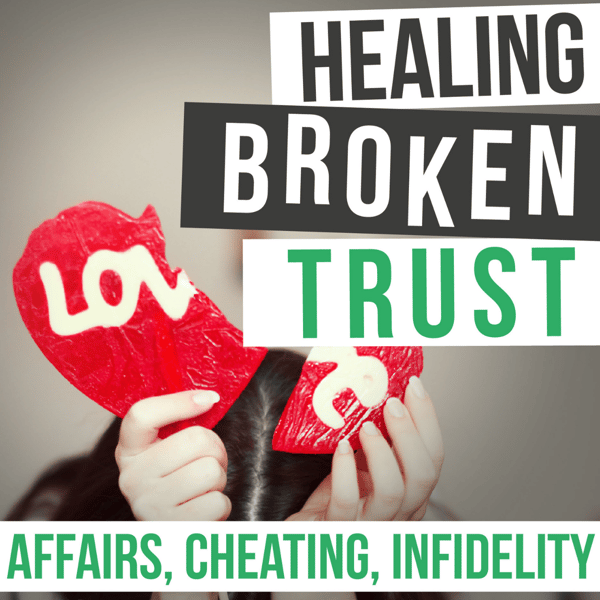Ep 76 A New Way To Look At Negative Cycles
Healing Broken Trust In Your Marriage After Infidelity
Brad and Morgan Robinson
4.6 • 737 Ratings
🗓️ 3 October 2024
⏱️ 43 minutes
🧾️ Download transcript
Summary
In episode 76 Brad and Morgan discuss a new way to look at negative cycles.
If you haven’t yet listened to episode 3 called “Why Do We Fight and Avoid Difficult Topics” that episode will help you understand negative cycles.
You can check that out HERE: https://healingbrokentrust.com/podcast-blog/ep-3-why-do-we-fight-or-avoid-talking-about-the-affair
We are available to help you heal broken trust. We have several ways to get help.
Couples Workshops: https://healingbrokentrust.com/hbtworkshop
Trauma Intensives: https://marriagesolutions.as.me/trauma-intensives
Stop My Divorce: https://healingbrokentrust.com/stop-my-divorce
Help for the Unfaithful: https://healingbrokentrust.com/healers-workshop
1-on-1 coaching/therapy: https://healingbrokentrust.com/coaching
Podcast Resources: https://healingbrokentrust.com/podcast
You can call our office at 918-281-6060 Monday-Friday 9AM-6PM CST. Contact us on the web at healingbrokentrust.com. If you live out of the US talk to our staff about discussing options via zoom.
Transcript
Click on a timestamp to play from that location
| 0:00.8 | Welcome to the Healing Broken Trust podcast. I'm Morgan Robinson. |
| 0:03.8 | And I'm Brad Robinson. And today we have a topic that everyone needs to hear. |
| 0:09.2 | If you've listened to the episode called Why Do We Fight or Avoid Difficult Topics, |
| 0:14.8 | you are introduced to the concept of negative cycles. And this episode will take that to the next level. So I'm excited that you |
| 0:24.1 | hear, sit back, get your popcorn. Let's talk about this. We want to start by telling you about |
| 0:30.1 | some research conducted in 1990. But first, we want to mention that we have workshops and |
| 0:36.6 | intensives and other ways to get help from someone you know and trust. That's us. |
| 0:41.6 | So visit our website at healingbroken trust.com. That's healing broken trust.com. Okay. So let's jump into the research, Brad. |
| 0:50.8 | Would you like to me to go ahead and talk about it first? Okay. So in 1990, researchers asked |
| 0:58.8 | individuals to share personal stories from their lives in which they still had an ongoing |
| 1:04.1 | personal relationship with someone to this day that they had angered. And then they were also asked about a time. So the same person was also |
| 1:14.3 | asked about a time that they made someone else very angry, deeply angry at them. So the researchers |
| 1:21.0 | were brilliant and that they used the same person, this is important, the same person to furnish |
| 1:26.6 | both victim and perpetrator |
| 1:29.0 | narratives for their findings. Because it, you know, important thing and why it's important is |
| 1:34.1 | because it rules out explanations that treat victims and perpetrators as different kinds of people. |
| 1:40.6 | Instead, you know, instead of how we often feel in a perpetrator victim situation it's based on a role we play |
| 1:48.9 | in the interaction so um there would be no ability really to label a person as psychopath or narcissistic |
| 1:56.2 | because it's the same person giving both accounts both the victim account and the perpetrator account. |
| 2:01.4 | So victims and perpetrators are not different kinds of people, rather we're the same people |
| 2:06.7 | who see things differently depending on whether we are the victim or in the perpetrator role. |
| 2:13.9 | So in the victim role or the perpetrator role. And, you know, we talk about it as |
... |
Please login to see the full transcript.
Disclaimer: The podcast and artwork embedded on this page are from Brad and Morgan Robinson, and are the property of its owner and not affiliated with or endorsed by Tapesearch.
Generated transcripts are the property of Brad and Morgan Robinson and are distributed freely under the Fair Use doctrine. Transcripts generated by Tapesearch are not guaranteed to be accurate.
Copyright © Tapesearch 2025.

